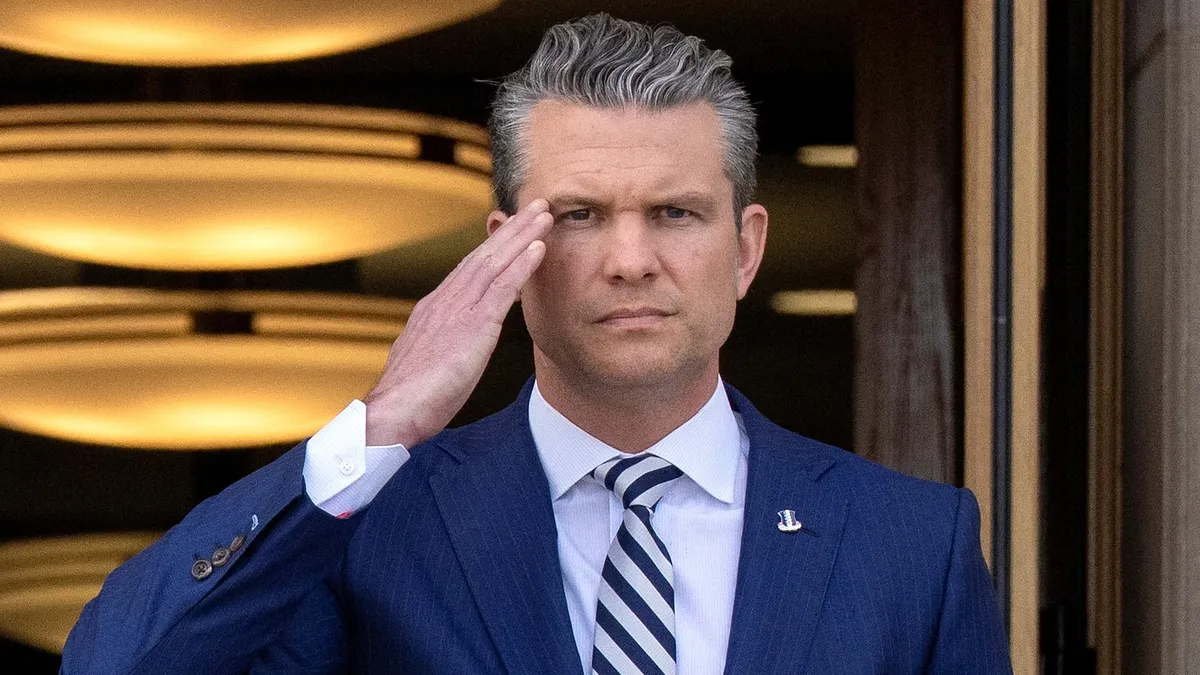
In March, Department of Defense Secretary Pete Hegseth reportedly shared sensitive information about an impending military operation against the Houthis in Yemen through a second group chat on the messaging app Signal. This chat included personal contacts such as his wife, Jennifer Hegseth, his brother, Phil Hegseth, and his personal attorney, Tim Parlatore, according to two sources who spoke with ABC News. The details disclosed included flight schedules for the F/A-18 Hornets that were set to be involved in the operation against Houthi positions.
The New York Times initially reported on Hegseth's use of a second Signal group chat for this sensitive information. This occurred around the same time key members of President Donald Trump's National Security Council, including Hegseth, inadvertently shared details about a missile strike in Yemen with the editor-in-chief of The Atlantic. The contents of the second chat were reportedly similar to those shared in the earlier discussion, raising concerns about information security and compliance with Department of Defense policies.
Sources confirm that the second Signal chat was originally established for discussing scheduling and administrative matters. However, the nature of information shared has led to significant scrutiny. Notably, Hegseth's wife does not have a role within the Defense Department, while his brother is a senior adviser at the Department of Homeland Security and is detailed to the Defense Department. Tim Parlatore serves as a Navy reservist at the Pentagon, assigned to Hegseth's office.
The Pentagon's independent inspector general has begun evaluating Hegseth's use of the Signal app to determine if he and other DoD personnel adhered to established protocols for conducting official business. Acting Inspector General Steven Stebbins issued a notification letter to Hegseth regarding this investigation. There have been assertions that no classified information was shared in the initial chat; however, former U.S. officials argue that sharing sensitive information through unapproved channels could endanger military personnel stationed overseas.
Complications from these communications have already affected investigations into potential leaks involving the first group chat, which included key aides—three of whom have since been dismissed. These officials—Dan Caldwell, Colin Carroll, and Darin Selnick—have publicly defended themselves against what they describe as unfounded accusations. In a joint statement on social media platform X, they expressed confusion about the nature of the investigation and the lack of clarity surrounding it.
John Ullyot, the former top spokesman for the Pentagon, recently published an opinion piece in Politico, criticizing the current state of affairs under Hegseth's leadership. He described a chaotic atmosphere marked by leaks of sensitive operational plans and a series of staff firings that have distracted from the president's agenda. Ullyot emphasized that Hegseth's recent actions have resulted in a troubling "purge" that has left him without key advisers.
Amidst these developments, Ullyot noted that even staunch supporters of Hegseth are acknowledging the dysfunction at the Pentagon. He raised questions about Hegseth's future in his role, given President Trump's history of holding officials accountable. As speculation mounts, it remains uncertain how these issues will unfold and what they mean for the leadership structure within the Department of Defense.
The situation surrounding Secretary Hegseth's communication practices and the subsequent investigations raises significant concerns about the integrity of information sharing within the Department of Defense. As the inquiry progresses, it will be crucial to monitor how these developments impact military operations and overall national security.